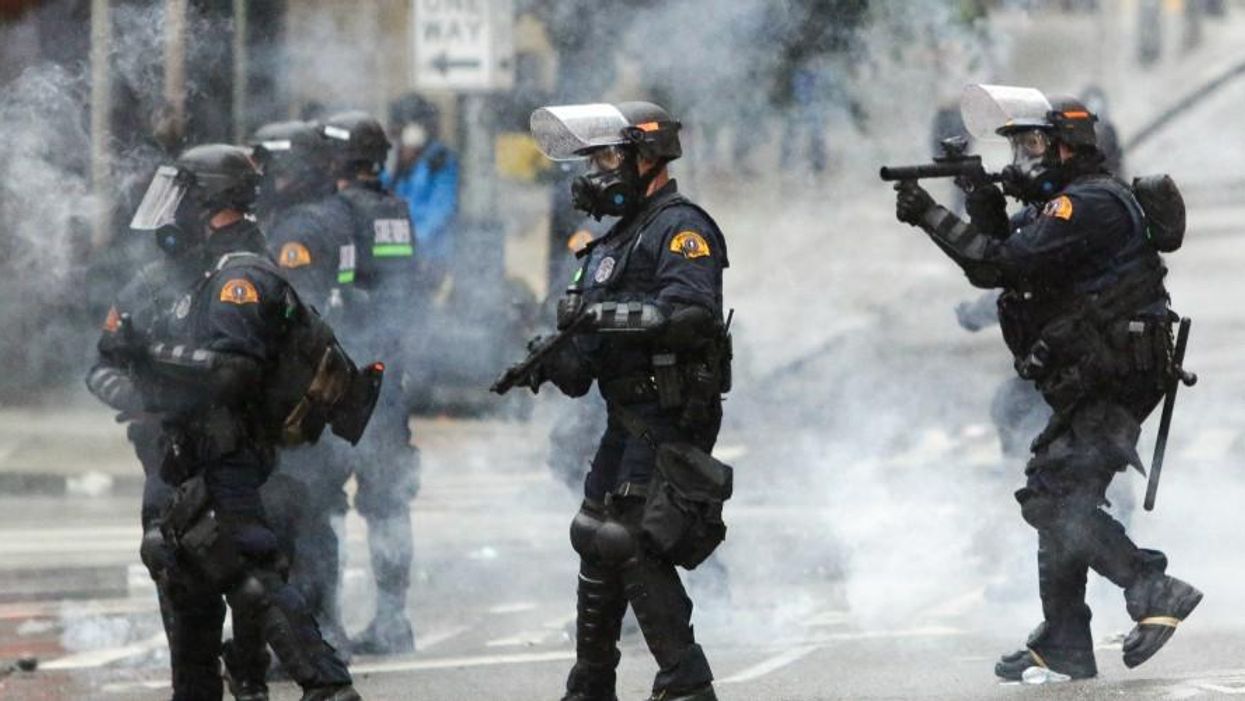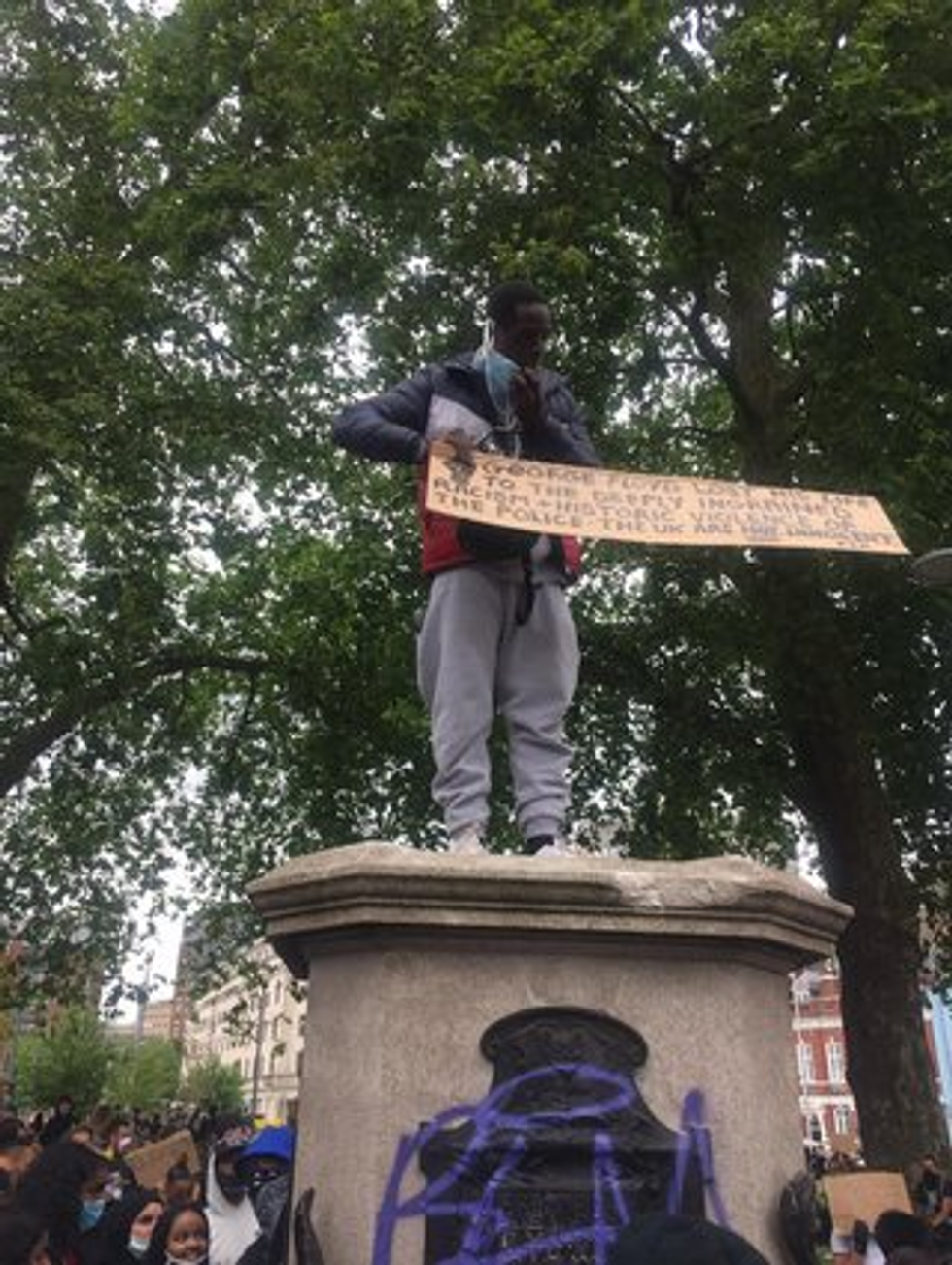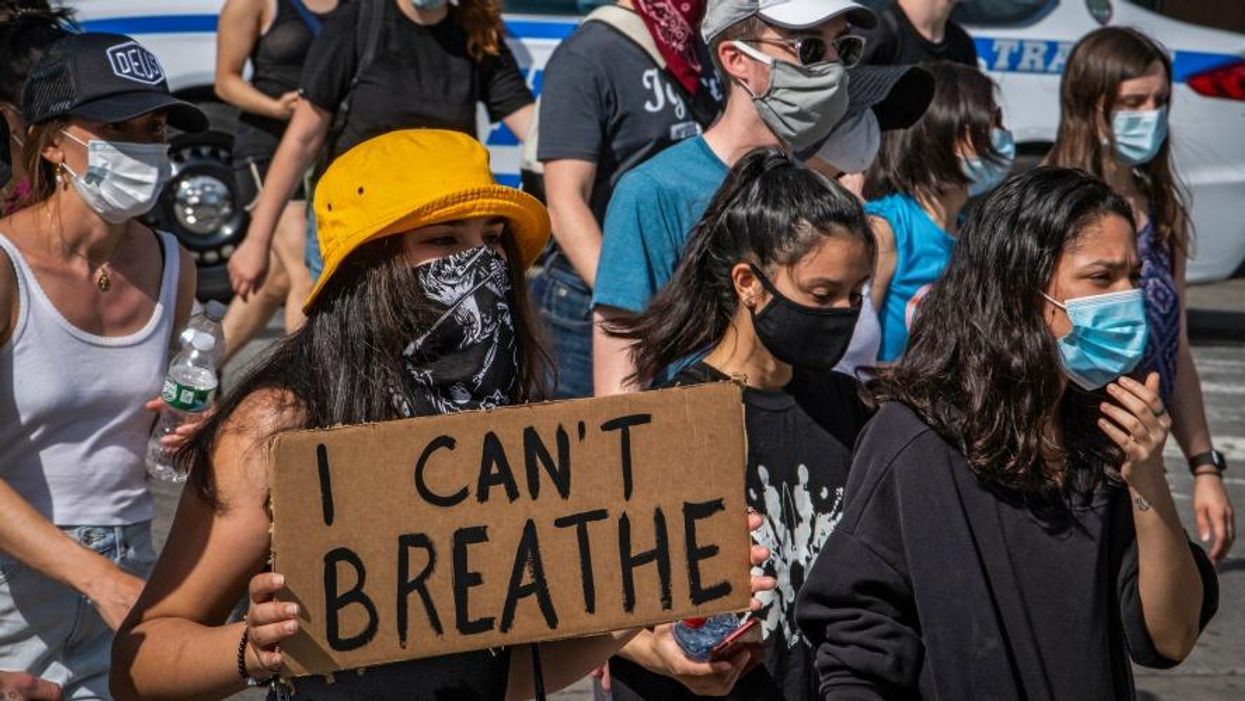Congress Can Lead the Charge on Divesting From Law Enforcement
The acknowledgment that Black Lives Matter demands bold and visionary leadership at the national level.
As a former Hill staffer, I know how the sausage gets made: the backroom deals, the pet projects, and the extreme partisanship. Our current moment requires far more than the ego, moderation, and compromise that is typically reflected in federal legislation. This country's recognition--finally--of the devastation and destruction that comes from the over-policing and over-criminalization of black bodies and communities warrants real, meaningful change. The acknowledgment that Black Lives Matter--finally--demands bold and visionary leadership at the national level.
Elected officials must dramatically reduce law enforcement budgets and put that savings into systems that could enfranchise black and brown people--housing, education, employment, and healthcare.
That audacious vision is divestment. We must stop investing in racist and brutal policing systems. Instead, we must start resourcing the black and brown communities that have been harmed by these "law and order" institutions. Elected officials must dramatically reduce law enforcement budgets and put that savings into systems that could enfranchise black and brown people--housing, education, employment, and healthcare. And providing full access to these segments of our society means removing police from them. School discipline, mental health crises, and homelessness should not be met with a police response.
Divesting from police must happen at all levels of government. At the federal level, divestment looks like an end to the Department of Defense's 1033 program, which gives law enforcement military weapons and equipment that are used against communities and protestors. It is an end to COPS grants that put police in schools and fuel the school to prison pipeline. Divestment is prohibiting Byrne JAG dollars from being used to continue low-level arrests, the failed drug war, and the destruction of black and brown communities. These dollars can and need to be better spent.
We know what policies and practices will not work because we have been here before. Michael Brown. Eric Garner. Breonna Taylor. George Floyd. The list of names does not stop here. Their lives deserve more than hashtags and slogans. They deserve much more than what elected officials have done to date. Members of Congress cannot continue to throw taxpayer money at another commission or study to determine the failings of law enforcement. Federal dollars cannot support more training, more technical assistance, more "checking the box" in the name of reforming the police.
If federal lawmakers are truly up for taking on the country's entrenched, racist, and violent policing systems, born out of slave patrols, they have the vocal and organized backing of constituents to get this done.
The federal government must invest in state and local communities differently. It must get out of the business of funding arrests and incarceration. And in the limited instances in which there would be law enforcement and community encounters, there must be measures to protect against police violence and ensure accountability when there is misconduct. Congress must model a national use of force standard that makes deadly force a rare, last resort. This respect for the sanctity of life must also be reflected in federal laws that prohibit the use of chokeholds and carotid holds. And if these laws are violated, there must be transparent and certain policies with which to hold police responsible.
As we mourn and protest the black lives lost, 21st century policing should look dramatically different than the current status quo. If federal lawmakers are truly up for taking on the country's entrenched, racist, and violent policing systems, born out of slave patrols, they have the vocal and organized backing of constituents to get this done. Now is not the time to dust off old bills and offer them as the way forward. Now is the time for divestment.



